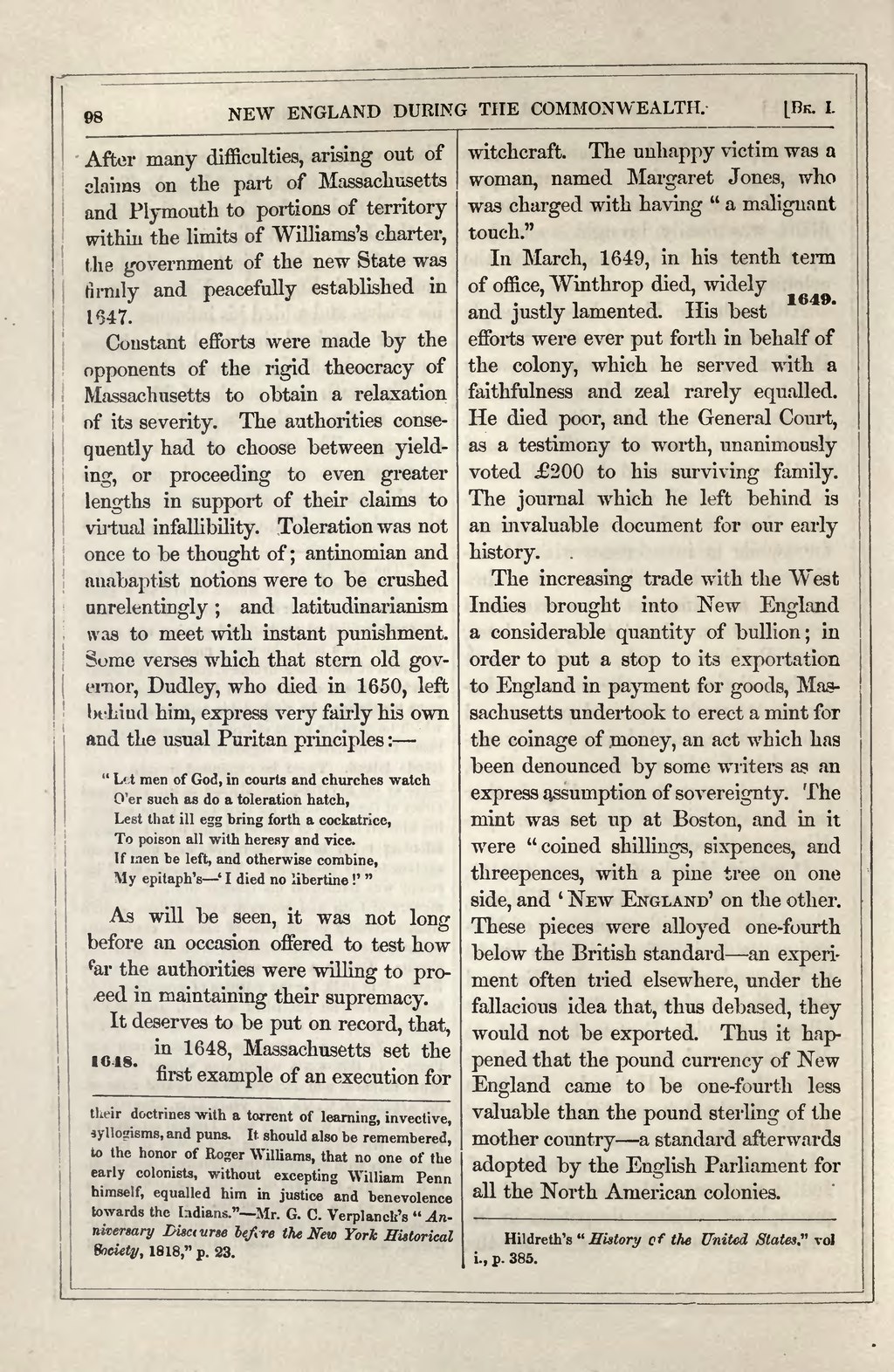After many difficulties, arising out of claims on the part of Massachusetts and Plymouth to portions of territory within the limits of Williams's charter, the government of the new State was firmly and peacefully established in 1647.
Constant efforts were made by the opponents of the rigid theocracy of Massachusetts to obtain a relaxation of its severity. The authorities consequently had to choose between yielding, or proceeding to even greater lengths in support of their claims to virtual infallibility. Toleration was not once to be thought of; antinomian and anabaptist notions were to be crushed unrelentingly; and latitudinarianism was to meet with instant punishment. Some verses which that stern old governor, Dudley, who died in 1650, left behind him, express very fairly his own and the usual Puritan principles:—
"Let men of God, in courts and churches watch
O'er such as do a toleration hatch,
Lest that ill egg bring forth a cockatrice,
To poison all with heresy and vice.
If men be left, and otherwise combine,
My epitaph's—'I died no libertine!'"
As will be seen, it was not long before an occasion offered to test how far the authorities were willing to proved in maintaining their supremacy.
It deserves to be put on record, that, in 1648, Massachusetts set the first example of an execution for witchcraft. The unhappy victim was a woman, named Margaret Jones, who was charged with having "a malignant touch."
In March, 1649, in his tenth term of office, Winthrop died, widely and justly lamented. His best efforts were ever put forth in behalf of the colony, which he served with a faithfulness and zeal rarely equalled. He died poor, and the General Court, as a testimony to worth, unanimously voted £200 to his surviving family. The journal which he left behind is an invaluable document for our early history.
The increasing trade with the West Indies brought into New England a considerable quantity of bullion; in order to put a stop to its exportation to England in payment for goods, Massachusetts undertook to erect a mint for the coinage of money, an act which has been denounced by some writers as an express assumption of sovereignty. The mint was set up at Boston, and in it were "coined shillings, sixpences, and threepences, with a pine tree on one side, and 'New England' on the other. These pieces were alloyed one-fourth below the British standard—an experiment often tried elsewhere, under the fallacious idea that, thus debased, they would not be exported. Thus it happened that the pound currency of New England came to be one-fourth less valuable than the pound sterling of the mother country—a standard afterwards adopted by the English Parliament for all the North American colonies.[1]
- ↑ Hildreth's "History of the United States." vol i., p. 385.
their doctrines with a torrent of learning, invective, syllogisms, and puns. It. should also be remembered, to the honor of Roger Williams, that no one of the early colonists, without excepting William Penn himself, equalled him in justice and benevolence towards the Indians."—Mr. G. C. Verplanch's "Anniversary Discourse before the New York Historical Society, 18 18," p. 23.
